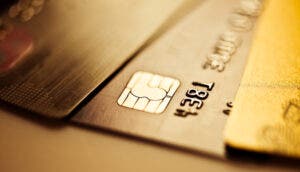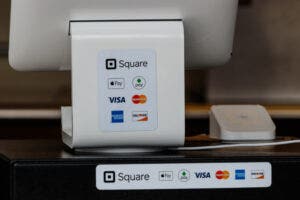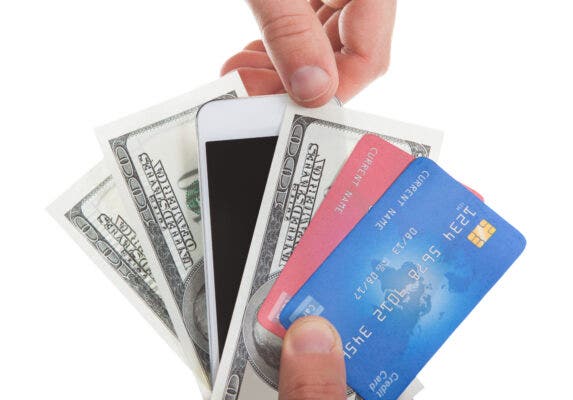Which Payment Methods Should Your Rental Business Accept?
The payment methods your rental business offers customers can make or break potential sales opportunities. But offering new payment methods comes with additional headaches, too.
You’re out at a new restaurant for dinner. You order your meal, you get your bill, and you head up to the register with your Visa or Mastercard. It’s not until you get there that you realize this particular eatery doesn’t accept plastic. And like a lot of modern day consumers, you don’t have enough cash with you to cover the bill. Ugh.
You now need to go out and find an ATM, then come back and pay your bill. It’s an inconvenience for you, the severity of which depends on how far away the nearest ATM is. And being late for whatever post-dinner plans you had will only exacerbate that frustration level further.
Unless the food and service were fairly outstanding, it’s safe to say most of us aren’t going to patronize that restaurant again after such an ordeal. Sure, it’s your fault for not having cash on hand. But why doesn’t that company accept your credit or debit card payment?
Let’s now approach this conundrum as a customer hiring your event or party rental business. Are they going to be fully prepared to pay using the payment methods you accept? Have you given adequate warning that you don’t accept one or more popular payment options?
These days, your customers expect a wider variety of payment options than were readily available in the past. Modern technology has made it easier than ever to facilitate credit and debit card payments, and there are a slew of formats for making digital transactions. So let’s take a look at what these options are and determine which payment methods are best (and worst) for your rental business.
Cash: Does it Really Rule Everything Around You?
 In an HBO special back in 2001, George Carlin quipped that people who use credit cards for small purchases were amongst the most annoying people you might come across on any given day. But today, nearly twenty years later, credit cards and small purchases practically go hand in hand.
In an HBO special back in 2001, George Carlin quipped that people who use credit cards for small purchases were amongst the most annoying people you might come across on any given day. But today, nearly twenty years later, credit cards and small purchases practically go hand in hand.
Back in the 1990’s (when that Wu Tang song I referenced earlier was still a big hit) and into the 2000’s, cash was the prevailing payment method for most retail and service transactions. And in a number of ways, cash is still king: 31 percent of consumer purchases were made with cash in 2016, versus 27 percent for debit cards and 18 percent for credit cards.
That having been said, cash usage has witnessed a very steady and dramatic decline over the past decade or so, while the popularity of debit and credit card payments has been on the rise. This has been helped by the disruptive rise of online shopping, where debit and credit cards are necessary and where cash is essentially useless.
The popularity of cash has dwindled to the point where some small business owners are simply refusing to accept cash at all. Meanwhile, a growing number of consumers don’t carry or use cash, and even get frustrated when they’re forced to.
Contrary to popular belief, businesses are not required by Federal law to accept cash. Some State laws make it a requirement, but cash doesn’t need to be accepted in most states. So long as your business makes it very clear to customers that you do not accept cash, it’s legal to refuse it. Massachusetts is one of the few States with a law mandating the acceptance of cash.
Should Your Rental Business Accept Cash Payments?
Cash has obvious pros. It’s easy to use, accessible for most consumers, and your profits are instant; there’s no delay while a bank processes a payment. But there are downsides to using cash, too.
Cash can be miscounted, lost, or even stolen. It’s harder to keep track of and keep records on. And those people who don’t use cash frequently are more prone to be irritated or turned off by cash only transactions.
Our verdict? Your rental business should definitely accept cash, but it’s important to accept other forms of payments, too. Cash is a simple and straightforward payment method, and a lot of customers will be happy to pay with it. But making cash your only payment option is just as bad for your business as refusing cash payments altogether.
Checks and Money Orders
Did you know the United States is one of the last countries in the world still using checks? It’s true. Checks have been dying a slow death for decades, and they’re even becoming rare here in the US, one of the last bastions of check (cheque) usage.
The reason why checks are losing so much ground in terms of popularity is pretty simple: they’re not as secure as other payment methods. Businesses that accept personal checks from consumers assume the bulk of the risk in those transactions. If a check bounces due to insufficient funds, it can be difficult—if not entirely impossible—to recover the losses.
Checks are still used for some bigger transactions, and renting a bounce house, inflatable water slide, or canopy tent certainly classifies as one. But these days, customers have come to expect personal checks to not be accepted, so you’re not likely shutting out customers by turning checks away.
Money orders and cashier’s checks, on the other hand, are considered by most small business owners to be safe alternatives to checks. Consumers pay for the money order directly and ahead of time, and the business issuing that money order ensures the payment is authentic and ready to be cashed. It’s generally safe to accept money orders, so why not?
Accepting Debit and Credit Cards the Traditional Way
 With the growing popularity of debit and credit cards, most small business owners are interested in finding out what’s involved in accepting them as payment methods. But the traditional method of accepting card payments is pretty complicated, and might be a little too much for a new rental business just starting out to handle.
With the growing popularity of debit and credit cards, most small business owners are interested in finding out what’s involved in accepting them as payment methods. But the traditional method of accepting card payments is pretty complicated, and might be a little too much for a new rental business just starting out to handle.
To accept debit and credit card payments directly, your rental business needs to acquire a special form of business bank account called a merchant account. Merchant accounts are held with an acquiring bank (also known as a merchant acquiring bank or acquirer), who serves as a sort of middleman between your rental business and the credit card companies used by your customers.
Acquiring banks will essentially front your business the profits of your sales, less their transaction fees of course, while payments are being processed.
This means the acquiring banks are assuming some risk, which of course means they’ll treat your merchant account as a sort of credit line, requiring your business to prove to them how established, solvent, and profitable you are.
(Have you been doing your paperwork, like we suggested in our 15 mistakes party rental companies often make article?)
Merchant accounts are often coupled with lengthy contracts as well as setup, maintenance, and transactional fees. These merchant account fees only grow if the acquiring bank is helping you set up point of sale (POS) systems and other necessities. And then there are the credit card company’s fees, such as their interchange rate.
You’ll want to learn what sorts of services acquiring banks offer and how much they cost. Learn about their fraud protection, POS hardware and software, endpoint security software (for phones and tablets), web solutions, payroll services, and whatever else they might offer.
Adding a Payment Service Provider (PSP) to Your Accepted Payment Methods
 Merchant accounts are expensive, time consuming, and difficult to obtain. They’re not a feasible option for most small businesses or a new rental business. But thankfully, there are alternatives to merchant accounts that still allow your company to accept debit and credit cards as payment methods.
Merchant accounts are expensive, time consuming, and difficult to obtain. They’re not a feasible option for most small businesses or a new rental business. But thankfully, there are alternatives to merchant accounts that still allow your company to accept debit and credit cards as payment methods.
Enter a payment service provider, or PSP. Chances are you’re already familiar with some of these companies: PayPal, Square, Stripe, and Amazon Pay are amongst the most popular options, while Google Wallet and Apple Pay are growing as well.
With these PSP platforms, your customers can pay you directly using debit and credit cards. Those companies then charge the seller (not the buyer) a transaction fee, which is usually a flat fee, a percentage, or some combination of the two.
PayPal's fees and Stripe’s fees are the same: 2.9 percent plus 30 cents per transaction. A bounce house rental of $250 through PayPal or Stripe would come to $7.55 in transaction fees. Square’s fees are a little more complicated, but generally range between 2.5 percent plus 10 cents and 3.5 percent plus 15 cents.
Related: Section 179: The Best Tax Law You’ve Never Heard Of
Payment service providers eliminate the need for a merchant account. They essentially serve as your acquiring bank. But there are no contracts, credit checks, or annual fees. You simply link the bank account your rental business uses to their services. And when you make a sale, you pay whatever their transaction fees are for that individual sale.
Payment service providers are probably the best option for the vast majority of rental business owners. Merchant accounts aren’t really necessary (or likely even available) if your company isn’t handling dozens of transactions every day.
How to Take Credit Card Payments
 Now that we know about payment service providers, we find ourselves faced with our next big dilemma: how to take credit card payments from customers. And thankfully, the answer isn’t all that complicated.
Now that we know about payment service providers, we find ourselves faced with our next big dilemma: how to take credit card payments from customers. And thankfully, the answer isn’t all that complicated.
Most of your transactions with customers are going to happen onsite, with customers paying before or after the party or event. For this, you’ll need a smartphone or tablet equipped with POS hardware, which plugs directly into your device’s USB port (for the less tech savvy amongst us, that’s the port you charge your phone or tablet with).
Most payment service providers sell POS hardware and software, as well as card readers for mobile devices. Most of these devices can handle swipe, chip, and tap (NFC) payments. PayPal has PayPal Here. Square has an assortment of various card readers. And Stripe’s Stripe Terminal allows customers to pay with cards, Google Wallet, or Apple Pay in a direct and easy way.
If you’d like to process payments and make sales using your website, you’ll need to invest in an e-commerce platform like Shopify, WooCommerce, or Weebly. These services provide you with new websites, or allow you to augment your existing website, with portals through which customers can browse products and make purchases.
Most e-commerce platforms charge transaction fees similar to those of payment service providers for handling card payments. Weebly, for instance, charges the same fee as PayPal; 2.9 percent plus 30 cents per transaction.
Staying Secure and Avoiding Fraud
Regardless of which payment methods your rental business opts to utilize, safety and security are always going to reign supreme. And remaining vigilant and avoiding fraud are amongst your chief tasks when handling payments from your customers. Here are some general hints and tips for avoiding fraud and maintaining your security during financial transactions.
- Pay for and install security software on your phone or tablet. This software should be installed on every device you use for payment transactions (and yes, this includes both Android and Apple devices). Take a look at ESET endpoint security services, Symantec Small Business Edition, and Bitdefender’s small business security tools.
- Always use biometric security features (fingertip readers, facial scanners, etc.) If your device supports those features
- Change passwords regularly and always use strong passwords. Also, NEVER write down your password or give your passwords to others. Never ever!
- Look into Address Verification Services (AVS), which allow you to verify a customer’s debit or credit card using their address.
- Ask your customer for identification for money order or card payments to ensure the name on the card is the same as their own. If you’re accepting checks, this should be mandatory.
- Ask for CVC codes in online and phone transactions. CVC codes are found on the backs of credit cards and help prove the customer physically has the card.
- Don’t keep cash onsite. Deposit cash at the end of the day, every day.
- Process a deposit when using debit or credit cards, prior to the rental, to ensure the card works and to deter fraudsters.
- Don’t spend money from card payments right away. Give them a week or so to make sure you aren’t getting stuck dealing with chargebacks.
- Call the credit card company or card issuing bank if anything seems fishy or “off.”
Think About the Payment Methods Your Rental Business Accepts
There are all sorts of payment methods your rental business can accept. Each method comes with its own pros and cons. At the end of the day, the methods you accept will boil down to your company’s own modus operandi; some options will work better for you than for other companies. It all boils down to who your customer base is, what payment methods they prefer, and what services are available to you within the confines of your operational budget.
Related: Is Equipment Financing Right for Your Party Rental Company?
The payment methods most companies should be accepting include cash, money orders, and debit and credit card payments through a payment service provider like PayPal, Square, or Stripe. A rental business doesn’t really need a merchant account, and checks are antiquated and generally not safe for most transactions.
Offering a large variety of payment methods for customers helps insulate your rental business from missing out on sales opportunities. Customers appreciate, consciously or otherwise, the freedom and flexibility of having multiple payment options available to them. And your rental business creates added revenue streams with each of the payment methods it accepts. Broadening these options may require additional work, but the win-win factor is undeniable.


